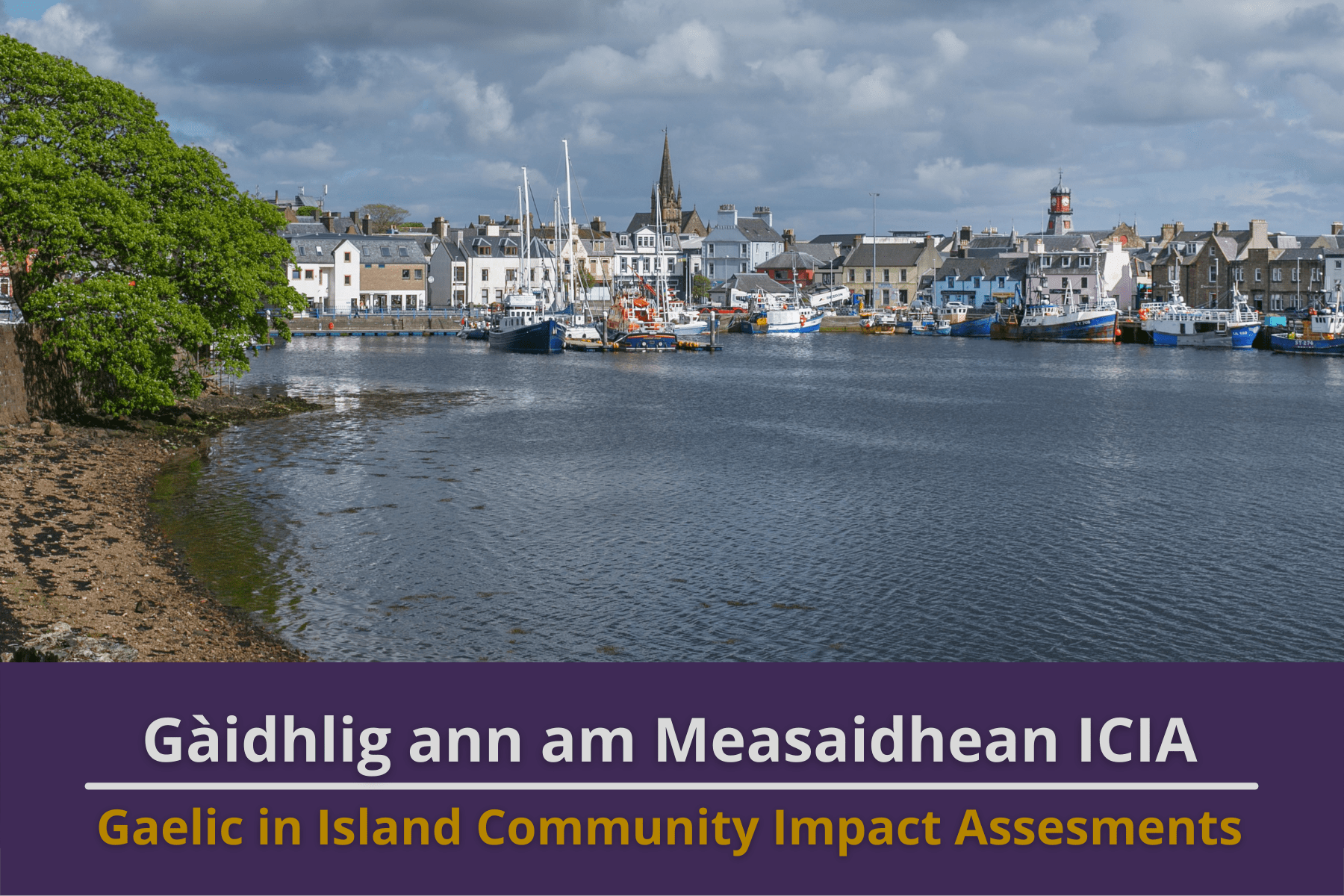Impact on Gaelic is now a part of Island Community Impact Assessments for the first time

Bord na Gàidhlig has welcomed new guidance from the Scottish Government that will see public authorities assess the impact on the Gaelic language within Island Community Impact Assessments (ICIA) for the first time.
Bord na Gàidhlig has welcomed new guidance from the Scottish Government that will see public authorities assess the impact on the Gaelic language within Island Community Impact Assessments (ICIA) for the first time.
The revised guidance will require public bodies to place an increased focus on how their decision making affects the Gaelic language.
The new guidance supports the National Islands Plan, and applies to all policy, including housing, economy, health and social care, education, culture, and community development.
Under the changes, if an ICIA indicates that any policy, strategy or service will have an impact on Gaelic, then the public authority must identify what steps are being taken to mitigate or improve the effect on the language.
All decisions must now be made in line with the National Islands Plan, published in 2021 to outline the Scottish Government’s commitments to improve outcomes for island communities.
Mairi MacInnes, Chair of Bòrd na Gàidhlig, said: “This change in guidance from the Scottish Government is a welcome development for Gaelic among Scotland’s island communities. It places a greater emphasis upon sustaining and growing our language’s use in the these communities, ensuring that public bodies, communities and individuals work in partnership to build upon the continuing growth of Gaelic throughout Scotland.
“This marks a major milestone in strengthening policies for Gaelic among the decision makers and will increase the focus on the opportunities and challenges for growing Gaelic. That can mean only good things for Gaelic and the implementation of the National Islands Plan and the National Gaelic Language Plan. This will also enhance the National Gaelic Language Plan’s ethos that strategies address the needs of island and rural communities.”
